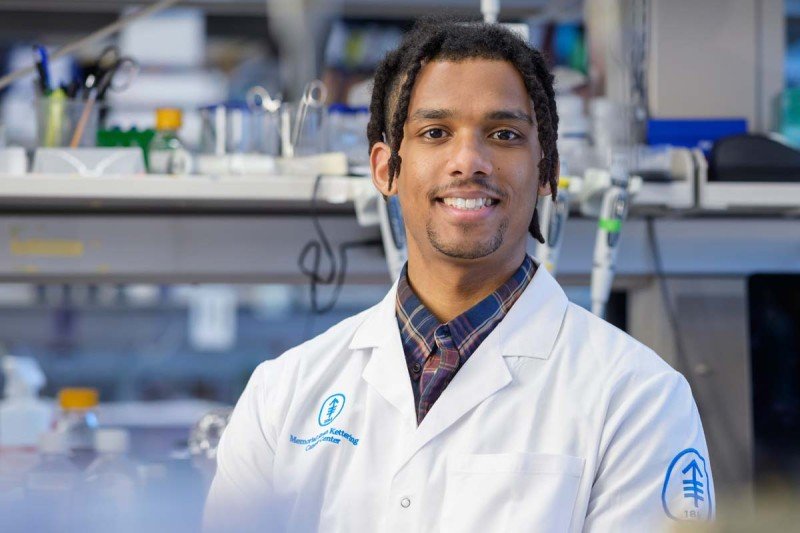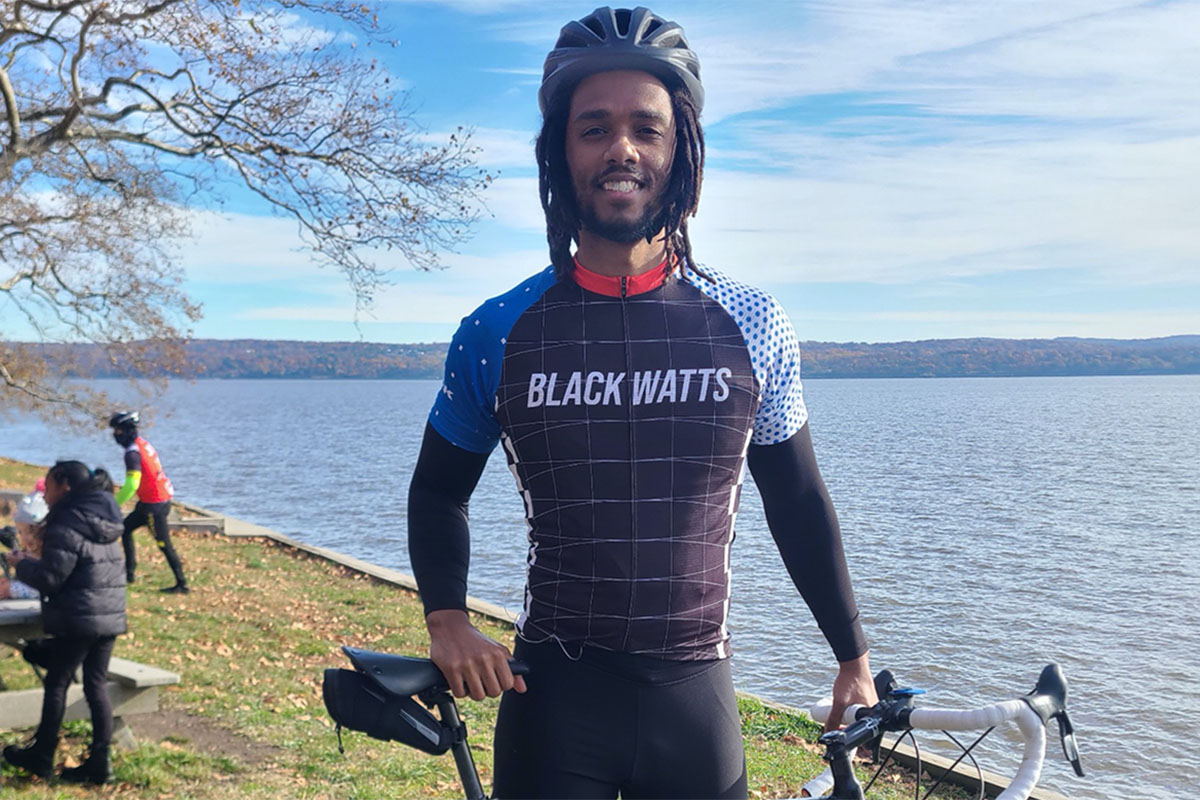
Chris Bourne remembers the moment he knew he wanted to become a researcher. He had just completed freshman year at Swarthmore College in Pennsylvania and landed a summer internship with a pharmaceutical company near where he had grown up in South Brunswick, New Jersey.
“I’d always had an interest in biology, but there I was in a lab conducting a drug-screening project, trying to find better ways of pain relief,” he says. “It was the first time I’d actually done research, and it really solidified for me what I wanted in a career.”
Three years later in 2017, he graduated with a biology degree and was accepted by the Graduate School of Biomedical Sciences at Weill Cornell Medicine. In 2019, as part of his training, Chris began working in the Sloan Kettering Institute laboratory of molecular pharmacologist David Scheinberg. He dove into the lab’s audacious project to test a new immunotherapy strategy that uses chimeric antigen receptor (CAR) T cells to serve as “micropharmacies” for cancer drugs. By December 2021, he was a co-author on a groundbreaking paper suggesting the approach holds great potential.
As a result of Chris’ exceptional research promise, he is the first recipient of the MERIT Sawyers Fellowship, created through a philanthropic donation from MSK physician-scientist Charles Sawyers and his wife, Susan. The fellowship provides more than $300,000 over five years to support Chris’ remaining two years in the graduate program as well as postdoctoral training.
The Sawyers Fellowship is part of MSK’s Maximizing Excellence in Research, Innovation, and Technology (MERIT) initiative, which funds the recruitment and career development of top scientists from racial and ethnic groups that have been historically underrepresented in science. Dr. Sawyers and Susan donated a total of $2 million to create the MERIT Sawyers Fellowship Fund to support this program, which will help fund future scientists at multiple educational levels.
“Susan and I are so pleased by the launch of the program and by the selection of Chris as the inaugural Sawyers fellow,” says Dr. Sawyers, Chair of the Human Oncology and Pathogenesis Program and Marie-Josée and Henry R. Kravis Chair at MSK. “After the announcement, I had an opportunity to meet with Chris to hear about his innovative CAR T work in the Scheinberg lab. It’s super exciting, and I look forward to seeing Chris move it forward over the next one to two years.”
“Chris is a remarkable young investigator who has demonstrated the creativity, talent, and perseverance that promises to take him onto a successful career as a scientist, and someone who will make important discoveries,” says Dr. Scheinberg, Chair of the Molecular Pharmacology Program in SKI, Director of the Center for Experimental Therapeutics, and Vincent Astor Chair.
Good Hands and a Sense of Humor
When Chris came to the Scheinberg lab for his three-month research rotation, he was paired with a mentor, Thomas Gardner, a senior postdoctoral fellow. Chris was interested in immunology and technology development, and Dr. Gardner was working on the CAR T project. It was a natural match.
“I was impressed with Chris right off the bat because in addition to having good hands — which is important for doing experiments — he was really inquisitive and enthusiastic about the science we were doing,” Dr. Gardner says. “He would also formulate his own questions and then pursue them.” (Dr. Gardner is now a senior scientist at ArsenalBio in San Francisco.)
The groundbreaking “micropharmacy” project Chris worked on involved engineering CAR T cells to deliver a toxic drug payload directly to a tumor, killing both tumor cells that contain the cancer marker as well as those cancer cells nearby that do not. The research team, led by Dr. Scheinberg and SKI Chemical Biology Program Chair Derek Tan, dubbed the engineered cells SEAKER cells, for Synthetic Enzyme-Armed KillER cells.
“When Chris joined, we asked him to look into an enzyme we were studying to see whether it would work for this application,” Dr. Gardner says. “That was the initial breakthrough that enabled a lot of the future work that led to the SEAKER paper.”
During the intense work, Dr. Gardner says Chris never lost his sense of humor. The two shared a lot of inside jokes using basketball terms — an experiment with good data was a “bucket” or “wet ball”; a bad one was a “brick.” Chris is now completing thesis work in the Scheinberg lab investigating the safety of the enzymes produced by the engineered cells.
Chris is a strong mentee and mentor, himself. “He’s a great person to mentor because he would take your advice to heart,” Dr. Gardner says. “But he also worked closely with summer interns and students we hosted in the lab and did a fantastic job teaching them, pushing them, and motivating them.”

Commitment to Social Justice
In addition to his scientific research, Chris is active in social justice campaigns. In 2020, he cofounded the Social Justice and Anti-Racism Task Force at Weill Cornell, which includes students, postdocs, and staff from both Cornell and MSK. “We’ve been working to identify barriers for underrepresented scholars and finding ways to bring them down to help scholars succeed,” Chris says.
He is also on the organizing committee of Black in Cancer, which aims to strengthen the network and highlight Black excellence in cancer research and medicine. He is active in the organization’s commentary on Twitter (#BlackInCancer) and tweets for himself under @TheBourneImmuno.
In addition, Chris has done community outreach encouraging people to get vaccinated against the COVID-19 virus. Working with Ushma Neill, Vice President of Scientific Education and Training, and Abraham Aragones, an internal medicine physician and public health researcher, Chris helped create a virtual presentation explaining the science behind the virus and the vaccines.
“I think it helped demystify the process because we could show our faces, and say, ‘We’re the scientists examining the data, and we can tell you it’s trustworthy,’” Chris says.
Outside his research and activism, Chris is an avid cyclist, sometimes going on 100-mile rides just to explore.
The Start of His Journey
Chris says that the Sawyers Fellowship will continue to provide benefits well beyond the five-year funding period.
“It’s so critical in my career to have a track record of obtaining funding because it enables me to get more funding down the road and possibly propel me into a faculty position,” he says. “This has made me more firm in my decision to continue in academia.”




